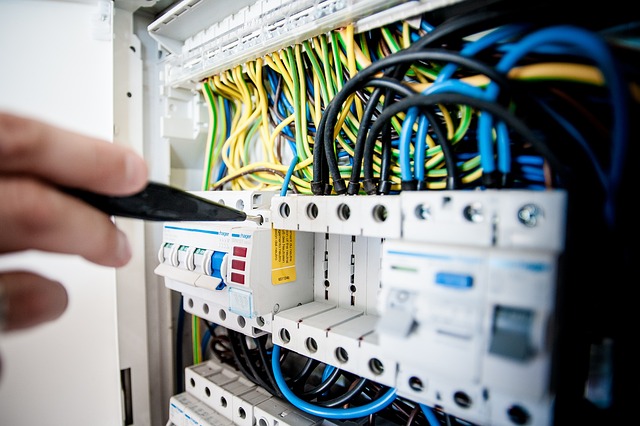Electricity is an integral part of modern life, powering our homes, appliances, and devices. However, it can also pose significant risks if not handled properly. Ensuring electrical safety in your home is crucial for protecting your family and property from electrical hazards. Here are ten essential electric safety tips that every household should know.
1. Understand the Basics of Electricity
Before diving into specific safety tips, it’s essential to have a fundamental understanding of how electricity works. Electricity travels through conductors, such as wires, to power our devices. Knowing the basics helps you identify potential hazards and understand the importance of safety measures.
Importance of Electrical Knowledge
Familiarizing yourself with the electrical systems in your home, including circuit breakers, outlets, and the load capacity of circuits, is key. This knowledge can help you recognize problems early and take preventive measures to avoid hazards.
2. Regularly Inspect Electrical Cords and Outlets
One of the simplest yet most effective ways to maintain electrical safety is by regularly inspecting cords and outlets.
Look for Signs of Wear
Check for frayed or damaged cords, exposed wires, or discoloration around outlets. If you notice any of these signs, replace the cords immediately or consult a professional electrician. Damaged cords can lead to electric shocks or fires.
3. Use Surge Protectors
Power surges can occur for various reasons, including lightning strikes and faulty wiring. These surges can damage electronics and appliances.
Invest in Quality Surge Protectors
To protect your devices, use quality surge protectors for your electronics, especially computers, televisions, and home entertainment systems. Make sure the surge protectors are rated for the devices they protect and replace them periodically to ensure effectiveness.
4. Avoid Overloading Outlets
Overloading outlets is a common cause of electrical fires. Plugging too many devices into a single outlet can exceed the circuit’s load capacity, leading to overheating.
Understand Your Outlet Limits
Check the amperage rating of your circuits and avoid plugging multiple high-wattage devices into one outlet. Instead, distribute devices across different outlets and circuits to ensure safety.
5. Keep Electrical Devices Away from Water
Water and electricity do not mix. Keeping electrical devices away from water sources is critical to preventing electric shocks and fires.
Establish a Safe Distance
Ensure that devices like toasters, hair dryers, and other electrical appliances are kept away from sinks, bathtubs, and wet areas. In bathrooms and kitchens, use Ground Fault Circuit Interrupter (GFCI) outlets, which shut off power when a short circuit occurs.
6. Childproof Your Outlets
If you have young children at home, childproofing your outlets is vital to prevent accidents.
Use Outlet Covers
Install safety covers on unused outlets and use tamper-resistant outlets to keep little hands safe. Teach children about electrical safety and the dangers of playing with outlets and cords.
7. Install Smoke Alarms and Carbon Monoxide Detectors
Smoke alarms and carbon monoxide detectors are essential safety devices that can save lives.
Regular Maintenance
Ensure that smoke alarms are installed in every bedroom, outside sleeping areas, and on every level of your home. Test them monthly and replace batteries at least once a year. Carbon monoxide detectors should be installed near sleeping areas and tested regularly to ensure functionality.
8. Know When to Call a Professional
While many electrical issues can be managed at home, some situations require the expertise of a qualified electrician.
Signs You Need Help
If you experience frequent circuit breaker trips, flickering lights, or notice a burning smell, it’s time to consult a professional. Attempting to fix complex electrical issues without the right knowledge can be dangerous.
9. Turn Off Electricity Before Working on Electrical Projects
If you plan to tackle any electrical projects, safety should be your top priority.
Use the Right Precautions
Always turn off the power at the circuit breaker before working on electrical installations or repairs. Use a voltage tester to ensure that no electricity is flowing to the wires you’re working with.
10. Educate Your Family on Electrical Safety
Teaching your family about electrical safety is crucial in preventing accidents.
Share Safety Tips
Hold family meetings to discuss electrical safety practices and ensure everyone understands the risks associated with electricity. Encourage questions and create an environment where safety is prioritized.
Stay Safe with Our Electrical Safety Resources!
Implementing these ten essential electric safety tips can help protect your household from potential hazards. By taking proactive measures and educating your family about electrical safety, you can create a safer living environment.
If you have questions or need professional assistance with electrical safety, contact us today! Our team of experts is here to help ensure your home is safe and secure from electrical risks. Let’s work together to keep your family safe!


 Your Local Reliable Electrician That You Can Trust
Your Local Reliable Electrician That You Can Trust 